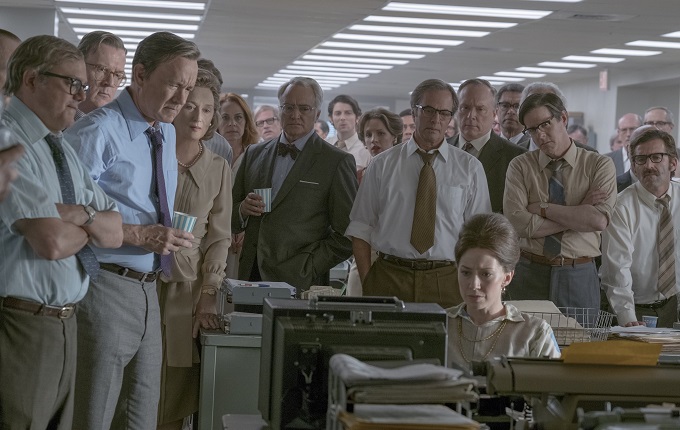The Post Review

The Plot
Based on the sensational true story The Post follows the legal battle between Nixon’s Whitehouse administration and The Washington Post over efforts to publish sensational revelations about the Vietnam War contained in classified government documents.
The Good
Director Steven Spielberg has a brilliant track record for documenting historical events in a dramatic and accessible way. His past work on Schindler’s List and Lincoln established his astonishing credentials in handling significant moments in global history with skill and due care. Spielberg brings his obvious passion to the cause of a free and fair press to the screen, having hastily made The Post seemingly as an act of urgent political necessity. That enthusiasm and sense of urgency does permeate the best moments of the film, bringing to life the thrill and perils of good journalism.
Meryl Streep and Tom Hanks both on predictably fine form, help inject some genuine personality into the real life news titans they portray. At this stage in their career their mere presence on screen is enough to make audiences realise that it’s important they pay attention. It’s almost as if they each emanate a constant Oscar winning glow, reassuring audiences of the unquestioned importance of proceedings.
Unsurprisingly given the Hollywood royalty behind the camera and in the two lead roles, the surrounding ensemble cast in The Post is littered with familiar faces and accomplished turns from brilliant character actors. The presence and nuanced sincerity of people like Bob Odenkirk and Bruce Greenwood helps lend added depth and sophistication to an otherwise simple story.
Though those familiar with the historical events the film documents may understandably find that the race against time dilemmas The Post explores are robbed of a little tension, thankfully fine performances hold audience’s attention in spite of this. Though the passage of time may have robbed these events of their modern reliance, the film does at least serve as an effective homage to an increasingly bygone era of exciting investigative journalism.
The Bad
While The Post does it’s best to capture the tension of a difficult dilemma of journalistic integrity, the importance of Vietnam War scandal may connect less with younger audiences for whom this chapter of American and world history feels increasingly remote. While some will be quick to try to draw direct parallels with modern political and media issues, in truth it’s difficult to connect these historic events with the dramatically evolved modern world.
Celebrating the golden era of investigative print journalism can’t entirely distract from the general collapse of the industry and the new more complex dilemmas arising from the new increasingly digital news landscape.
While The Post is well crafted it’s perhaps also difficult to avoid direct comparisons with other acclaimed films exploring similar themes such as All The President’s Men and more recently Spotlight. The Post perhaps doesn’t quite have as much emotional and political complexity as those films, though that’s amore a reflection on the facts of history than any particular filmmaking failure.
The Ugly Truth
Iconic director Steven Spielberg and the combined talents of an astonishing ensemble cast breathe life into a point in political, legal and media history that raises some of the same question and concerns that face a modern day audience. The Presence of stars Like Streep and Hanks lends the relatively straightforward events of the film the sense of gravitas and drama it requires.
Review by Russell Nelson